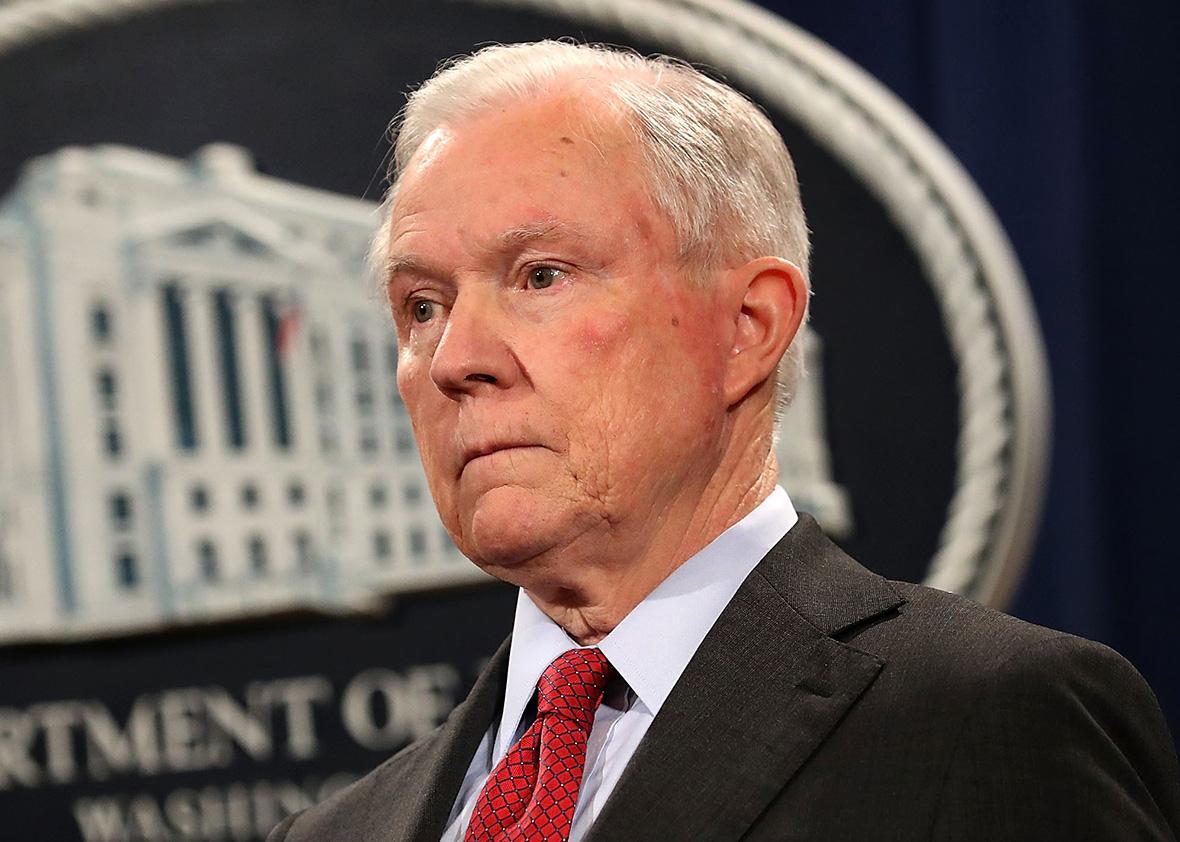As Americans were preparing to ring in the new year over the weekend, the Trump administration fired a new retaliatory salvo in its war against undocumented teenagers who seek lawful abortions in contravention of the government’s wishes. In November, the Department of Justice asked the Supreme Court to sanction the ACLU attorneys who secured one minor’s right to abortion access, an unscrupulous act of attempted retribution. Now the DOJ wants to punish a minor by revealing her private medical information to an uncle who threatened to “beat” her if she terminated her pregnancy.
Justice Department attorneys launched their latest offensive in response to yet another judicial rout of the administration policy that attempts to bar undocumented minors from getting abortions, even in the case of rape. On Dec. 18, 2017, U.S. District Judge Tanya Chutkan ordered the Trump administration to allow two more undocumented teenagers in federal custody, known as Jane Poe and Jane Roe, to obtain abortions. She also prohibited the government from divulging information about their pregnancies or abortions “to anyone.” Both women promptly underwent the procedure, according to an ACLU court filing. Then, on Thursday, the ACLU asked Chutkan to extend her restraining order by continuing to bar the government from disclosing Poe and Roe’s abortion statuses.
This request was quite reasonable, as Poe and Roe have a constitutional right to privacy in their medical information. But the Justice Department decided to oppose the ACLU’s motion for two reasons. First, the DOJ argued that Roe does not deserve privacy protections because she is 19 and therefore subject to a different set of rules from undocumented minors. (Roe says she is 17 and was initially treated like a minor, but the government located a birth certificate indicating that she is actually two years older.) Second, with regard to Poe—who is indisputably 17—the government demanded the ability to disclose her abortion information “to medical providers” in order “to vet potential sponsors.”
The government does not persuasively explain why it might need to disclose Poe’s abortion status to her doctors instead of simply letting her do it. But what’s more disturbing is the notion that Trump administration officials would want (or need) to tell Poe’s possible sponsors about her procedure. A sponsor, typically a family member, houses an undocumented minor until she reaches the age of majority, acquires lawful status, or gets deported. Poe’s most likely sponsor is her uncle—who told Poe that he would “beat” her if she terminated her pregnancy. The government requests the authority to inform Poe’s uncle—as well as her parents, who made the same threat—that she went through with the abortion.
Bizarrely, the Justice Department claims that the government may disclose Poe’s abortion status because other people already know about it. It points to the ACLU court filing that implies Poe obtained the procedure and notes that “it will be obvious in a matter of months” to her parents. The DOJ asserts that the First Amendment grants Poe’s parents the right to discuss their daughter’s abortion status once they find out about it. It then suggests that freedom of expression also protects the government’s authority to disclose Poe’s medical history. “Here,” the DOJ claims, “just as Ms. Poe’s parents are permitted to act based on information lawfully obtained, so, too may ORR.” (That’s the Office of Refugee Resettlement, which oversees undocumented minors.)
In this startling passage, the government is essentially arguing that it holds a First Amendment right to reveal Poe’s abortion status to her abusive family. Why? Because ORR is “acting in the place of [Poe’s] parent” and thus holds similar “custodial responsibilities” and rights—including, apparently, the ability to disseminate her medical information. As Greg Lipper, First Amendment attorney and current litigation partner at Clinton Brook & Peed, told me on Tuesday, this theory is deeply flawed.
“The argument goes off the rails,” Lipper said, “because parents have rights to do all sorts of things—require their children to attend church, regulate their children’s speech, ground them without due process of law, etc.—that the government plainly may not do to people in its custody.” Actual parents hold rights that ORR does not, even when the agency acts as a parent. The First Amendment forbids the government from abridging free expression; it does not grant government actors free-speech rights to violate a minor’s right to medical privacy.
Within a day of the DOJ’s filing, the ACLU hit back, writing that the response “demonstrates precisely why” Chutkan must extend the restraining order. ORR officials “affirmatively seek to tell Jane Poe’s parents and potential sponsor about her abortion,” the ACLU wrote, “which is stunning given that Ms. Poe’s parents and potential sponsor have threatened to physically harm her if she obtained an abortion.” Moreover, government officials “do not possess a First Amendment right to tell others about Ms. Roe’s and Ms. Poe’s abortion decision[s]. To the contrary … they are bound by the Constitution—unlike a minor’s parents—to protect Ms. Roe’s and Ms. Poe’s privacy.”
On New Year’s Eve, Chutkan granted the ACLU’s request over the DOJ’s objections, extending the restraining order to proscribe the government from disclosing Poe or Roe’s abortion status. It is not yet clear whether the DOJ will appeal Chutkan’s order. What is distressingly evident is that the Trump administration’s anti-abortion crusade has become bitterly retributive. The government does not only wish to force undocumented minors to carry unwanted pregnancies; it also wants to penalize the lawyers who defend those teens as well as the women themselves. And so, while claiming to “promote life,” the administration is seeking to subject Poe to the threat of physical abuse—in the name of protecting her “best interest.” That’s not pro-life. It’s just cruelty.
